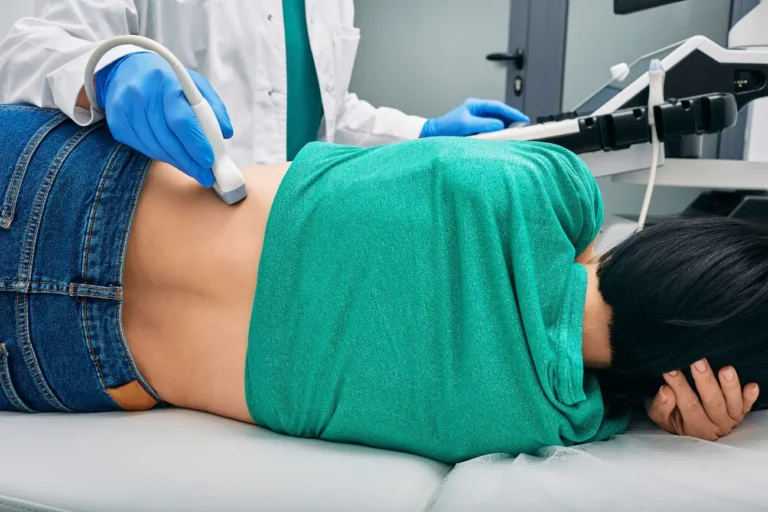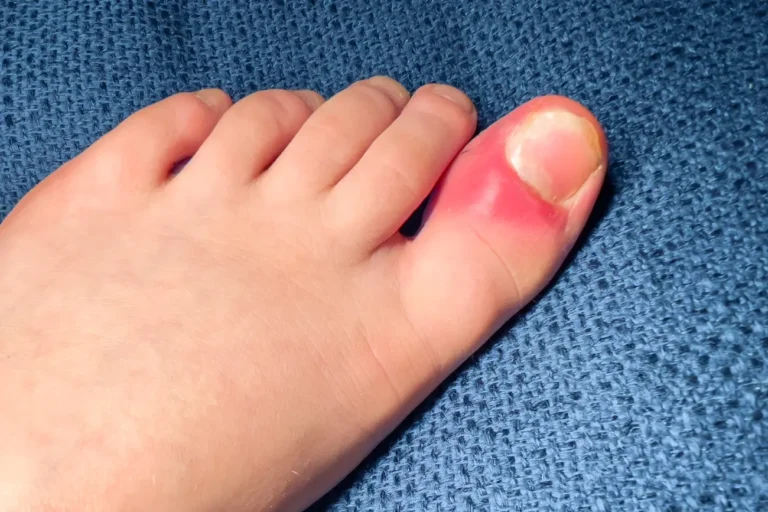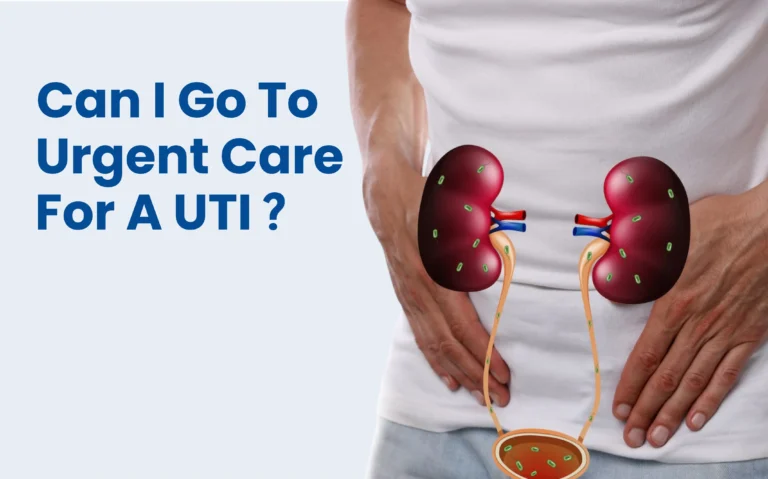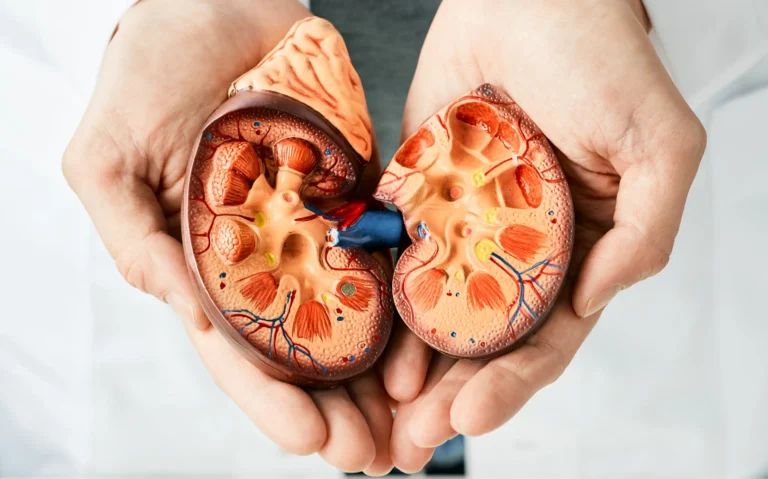What Is a Yeast Infection?
A yeast infection, also known as vaginal candidiasis, is caused by an overgrowth of Candida, a naturally occurring fungus in the body. When this fungus multiplies beyond normal levels, it can lead to uncomfortable symptoms such as:
- Vaginal itching or irritation
- Burning during urination or intercourse
- Thick, white discharge (often compared to cottage cheese)
- Redness or swelling in the affected area
Though yeast infections are most commonly associated with women, men can also experience yeast infections, particularly around the groin area. If you’re unsure whether your symptoms are from a yeast infection or another issue like a urinary tract infection, it may help to read our guide: Can I Go to Urgent Care for a UTI?
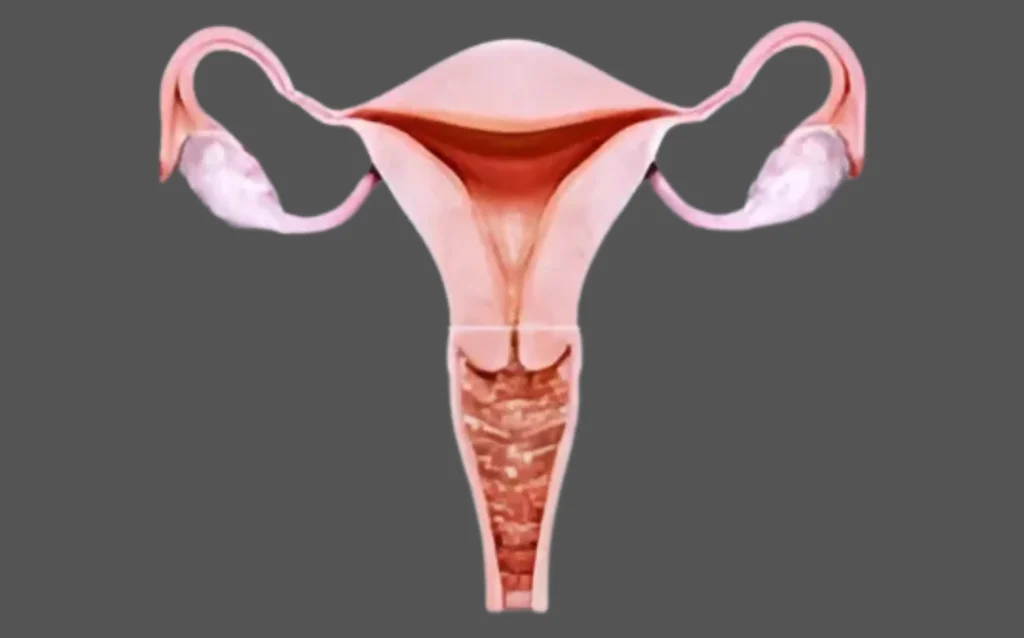
Causes and Risk Factors
There are several reasons why someone may develop a yeast infection, including:
- Antibiotic use: Antibiotics can disrupt the natural balance of bacteria and yeast in the body.
- Hormonal changes: Pregnancy, birth control pills, and menstrual cycles can create an environment where yeast thrives.
- Weakened immune system: Illness or medications that suppress your immune system may increase risk.
- High blood sugar levels: People with uncontrolled diabetes are more likely to develop yeast infections.
- Poor hygiene or excessive moisture: Wearing tight or non-breathable clothing can create a warm, moist environment ideal for yeast overgrowth.
Understanding these risk factors can help you make informed choices about when and how to seek treatment.
When Should You Go to Urgent Care for a Yeast Infection?
Our walk-in urgent care in Houston are fully equipped to diagnose and treat yeast infections quickly and effectively. Here’s when you should consider stopping by:
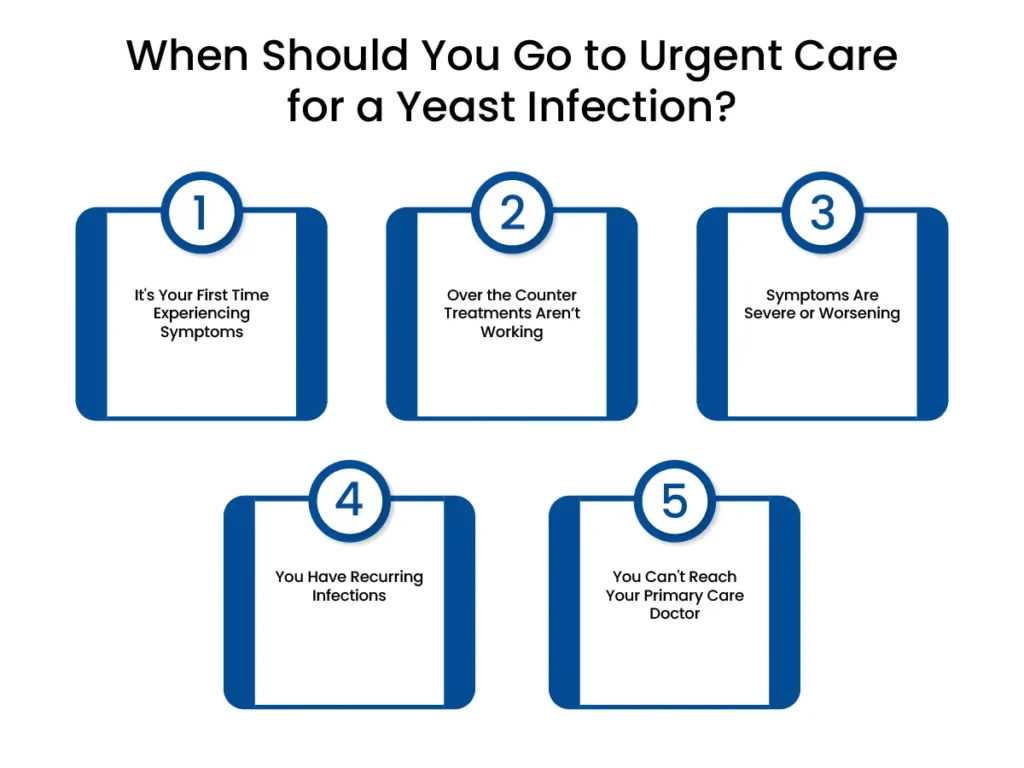
It’s Your First Time Experiencing Symptoms
If you’ve never had a yeast infection before, it’s important to get a professional diagnosis. Other conditions, such as bacterial vaginosis or sexually transmitted infections (STIs), can cause similar symptoms.
Over-the-Counter Treatments Aren’t Working
Many mild yeast infections can be treated with OTC antifungal creams or suppositories. But if those don’t help within a few days, it’s time to seek medical attention.
Symptoms Are Severe or Worsening
If your symptoms are causing significant pain, discomfort, or are getting worse, don’t wait. Urgent care can provide prescription-strength medications that work faster and more effectively.
You Have Recurring Infections
Experiencing yeast infections four or more times a year is considered recurrent. This often requires more in-depth evaluation and possibly a longer treatment plan.
You Can’t Reach Your Primary Care Doctor
Primary care physicians often have limited hours or require advanced appointments. Urgent care provides a convenient, same-day alternative, no appointment necessary.
What to Expect During Your Urgent Care Visit
When you visit Priority Urgent Care in Houston, our providers will start by asking about your symptoms and medical history. If necessary, a physical exam may be conducted to confirm the diagnosis.
In some cases, a sample may be taken for lab testing to rule out other infections. Once diagnosed, you’ll receive a personalized treatment plan, which may include:
- Prescription antifungal medications (oral or topical)
- Recommendations for symptom relief (like cold compresses or OTC pain relievers)
- Follow-up care guidance to help prevent recurrence
Our goal is to provide accurate, compassionate care with minimal wait times and maximum convenience.
Why Choose Urgent Care Over the ER?
Emergency rooms are meant for life-threatening conditions. While yeast infections are uncomfortable, they’re not typically emergencies. Urgent care is often the better option for:
- Lower costs
- Shorter wait times
- Convenient locations
- Evening and weekend hours
At Priority Urgent Care in Houston, we provide expert care in a welcoming environment, so you can get back to feeling better fast. We also offer fast and reliable urgent care for UTI and other women’s health concerns.
How to Prevent Future Yeast Infections
Once you’ve been treated, you’ll want to take steps to reduce your chances of a recurrence. Here are a few tips:
- Practice good hygiene: Avoid harsh soaps and douches that can disrupt the natural pH.
- Wear breathable clothing: Choose cotton underwear and avoid tight-fitting clothes.
- Limit sugar intake: Yeast feeds on sugar, so cutting back may help prevent overgrowth.
- Take probiotics: These support healthy bacteria levels in your body.
- Avoid unnecessary antibiotic use: Only take antibiotics when absolutely needed and as prescribed.
By making a few lifestyle adjustments, you can keep your body in balance and reduce your risk.
Visit Priority Urgent Care in Houston Today
Yeast infections can be frustrating and uncomfortable, but you don’t have to suffer in silence or wait for an appointment. Priority Urgent Care in Houston offers fast, professional care so you can start feeling better today.
Whether it’s your first yeast infection or a recurring issue, we’re here to help with prompt diagnosis, effective treatment, and compassionate care. Walk in today, no appointment needed.

